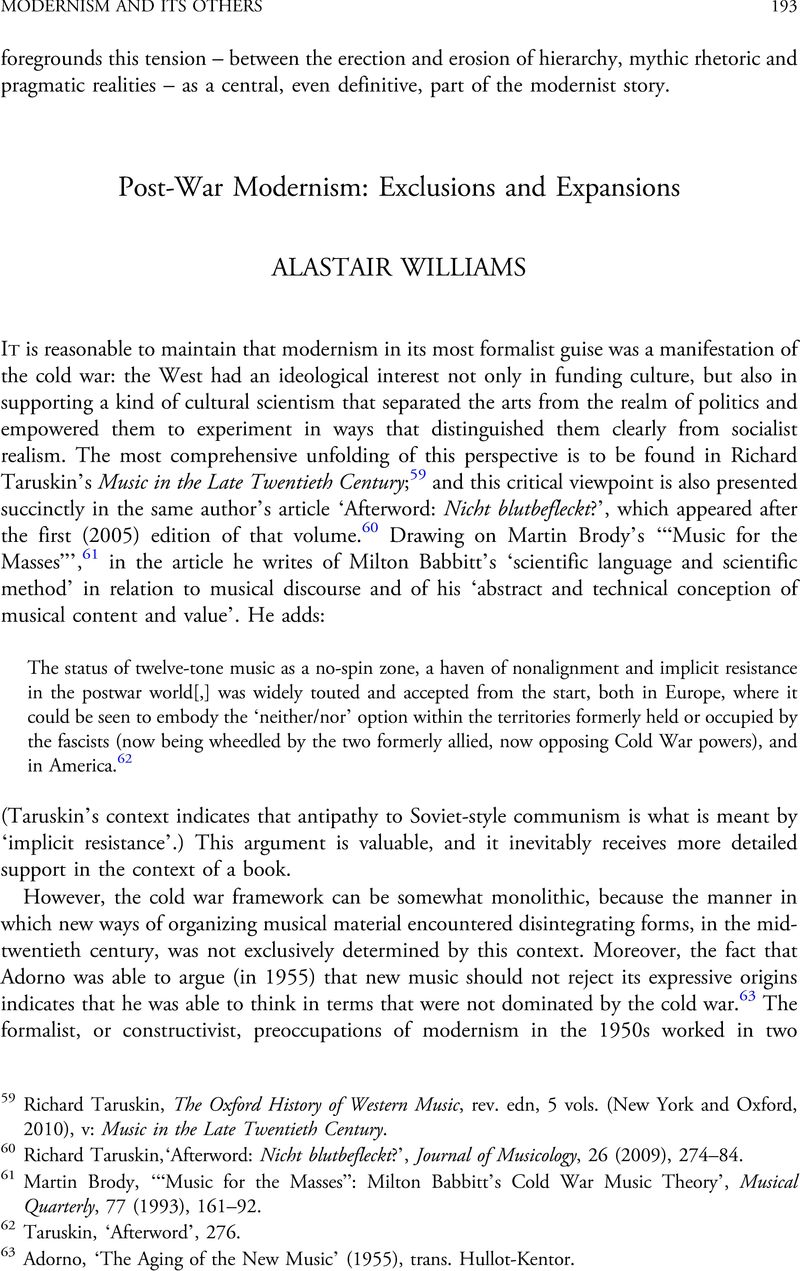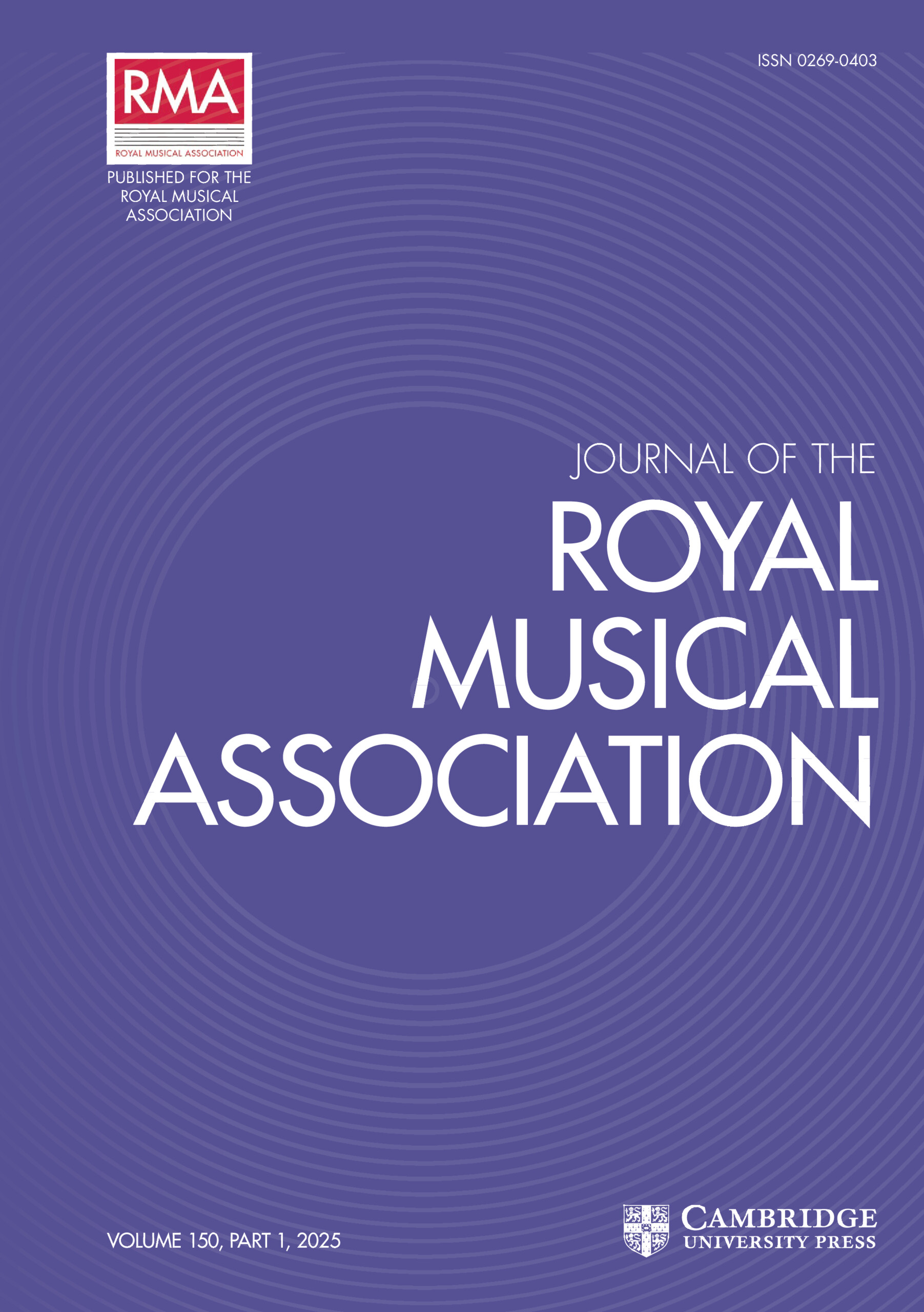Article contents
Post-War Modernism: Exclusions and Expansions
Published online by Cambridge University Press: 01 January 2020
Abstract

- Type
- Round Table: Modernism and its Others
- Information
- Copyright
- Copyright © 2014 The Royal Musical Association
References
59 Richard Taruskin, The Oxford History of Western Music, rev. edn, 5 vols. (New York and Oxford, 2010), v: Music in the Late Twentieth Century.
60 Richard Taruskin,‘Afterword: Nicht blutbefleckt?’, Journal of Musicology, 26 (2009), 274–84.
61 Martin Brody, ‘“Music for the Masses”: Milton Babbitt's Cold War Music Theory’, Musical Quarterly, 77 (1993), 161–92.
62 Taruskin, ‘Afterword’, 276.
63 Adorno, ‘The Aging of the New Music’ (1955), trans. Hullot-Kentor.
64 Theodor W. Adorno, ‘On the Contemporary Relationship of Philosophy and Music’, trans. Susan Gillespie, in Adorno, Essays on Music, ed. Leppert, 135–61.
65 Nicolaus A. Huber, ‘Critical Composition’, trans. Petra Music and Philipp Blume, Contemporary Music Review, 27 (2008), 565–8 (p. 565).
66 Helmut Lachenmann, ‘Philosophy of Composition – Is There Such a Thing?’, trans. Wieland Hoban, Identity and Difference: Essays on Music, Language and Time, ed. Peter Dejans (Leuven, 2004), 55–69 (p. 57). In making this point, Lachenmann is revisiting an essay from 1986: Helmut Lachenmann, ‘Über das Komponieren’, Musik als existentielle Erfahrung, ed. Häusler, 73–82.
67 For more on the ‘new subjectivity’ in West Germany at this time, see Jessica Balik, ‘Romantic Subjectivity and West German Politics in Wolfgang Rihm's Jakob Lenz’, Perspectives of New Music, 47 (2009), 228–48.
68 Brian Ferneyhough, ‘Il tempo della figura’, Collected Writings, ed. James Boros and Richard Toop (Amsterdam, 1995), 33–41.
69 A transcript of the recorded exchange between the two composers is included in an appendix to Helmut Lachenmann, ‘Open Letter to Hans Werner Henze’, trans. Jeffrey Stadelman, Perspectives of New Music, 35 (1997), 189–200.
70 For more on this transformation in Germany, see Alastair Williams, Music in Germany Since 1968 (Cambridge, 2013).
71 J. P. E. Harper-Scott, The Quilting Points of Musical Modernism: Revolution, Reaction and William Walton (Cambridge, 2012), viii.
72 Albrecht Wellmer, ‘On Music and Language’, trans. Wieland Hoban, Identity and Difference, ed. Dejans, 71–131 (p. 129).
73 For a critical account of new musicology and European modernism, see Björn Heile, ‘Darmstadt as Other: British and American Responses to Musical Modernism’, Twentieth-Century Music, 1 (2004), 161–78.
- 1
- Cited by




